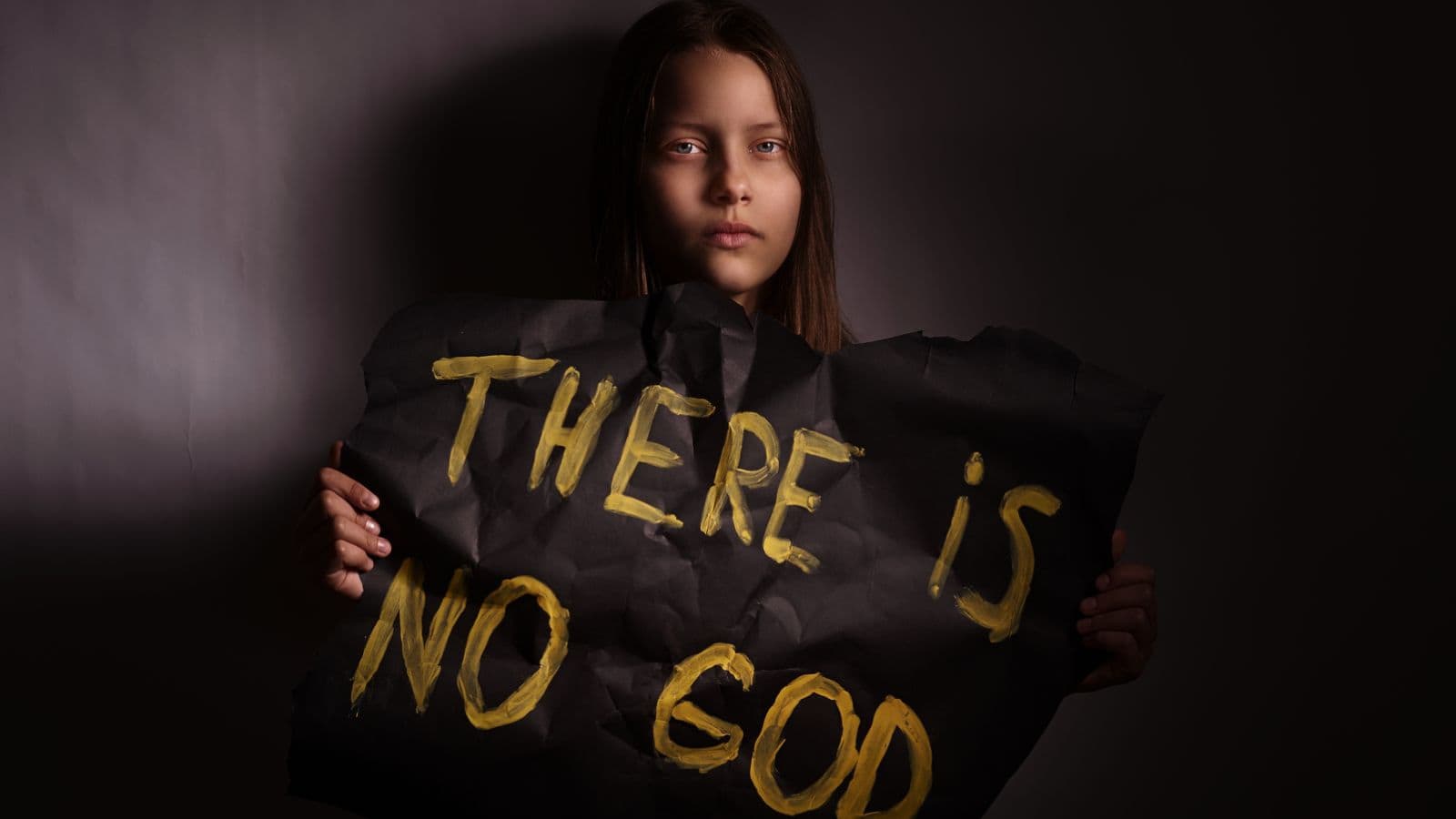Going to church has been a cornerstone of American life for centuries, but recent trends show a shift. Many are rethinking their faith and dropping their Christian values. Here are 18 reasons why some Americans are saying goodbye to Christianity.
Xenophobic Beliefs

Xenophobic beliefs are not just unpopular within our more modern society but also frowned upon. NBC News reported that “white Christians are consistently more likely than whites who are religiously unaffiliated to deny the existence of structural racism.” This popular opinion could have caused some Americans to stay away from Christianity.
Immigration Patterns

As the world becomes more multicultural, America is no exception. Immigrants migrating to the USA bring with them their own faiths, like Islam, Hinduism, or Buddhism. This creates a more religiously diverse nation. As Christian-identifying populations grow older and immigrants from other faiths have children, the overall percentage of Christians in the US might have decreased.
Scientific Discoveries

Science is constantly making new discoveries, some of which might challenge the teachings of the Bible and the Christian Church. The Washington Post was told, “Science and religion are incompatible, and you must choose between them.” With scientific explanations often feeling more tangible, it can be difficult for people to pick a side.
Distractions

Figures indicate that fewer people read the Bible these days. Possibly due to the constant barrage of information, entertainment, and social media notifications, which have superseded time for religious reflection and practice. The constant mental stimulation from technology makes it difficult to reach a level of deep concentration and introspection; often required to become a devout Christian.
Changes in Society

Evolving social values on issues such as LGBTQ+ rights conflict with some Christian views and teachings. Some of these differences might appear too strict and inflexible to a younger, more modern American. The Source reported that “Christians may perceive that an America where same-sex marriage is legal is one in which they have lost their sway and are now victimized.”
Rise of Non-Religious Communities

There has been an increase in non-religious groups and organizations that offer a sense of belonging and support without the constraints of Christianity. Online forums, social gatherings, and volunteer organizations can fulfill those seeking purpose and connection. These communities often focus on shared values like social justice, environmentalism, or personal growth, providing an alternative to Christian communities.
Public Scandal

Reputation and hearsay will always have an impact on public opinion, so it’s no wonder that the Christian Church is no exception. CNN told how “a cascade of headlines in recent years have stained the church’s reputation, including sex abuse scandals in the Roman Catholic Church and the Southern Baptist Convention.” Maybe not all publicity is good publicity after all.
Individual Spirituality

People are increasingly seeking a more personalized approach to spirituality. Rather than following the once-traditional route of Christianity, more people are following more personalized spiritual journeys. Practices like meditation or a focus on development are much more popular these days. With a wide range of spiritual communities and resources available online, beyond traditional religious institutions.
Outdated Doctrine

Christian beliefs have and can be interpreted differently; even the Protestants and Catholics didn’t see eye to eye on certain things. These strict sets of rules, which make even devout Christians squabble, may have contributed to the lack of appeal of becoming a Christian. After all, didn’t God desire for all Christians to be united, as stated in John 17:21?
Other Religions

As ease of travel and communication exposes Americans to a wider range of religious options, beliefs, and traditions, more have begun to explore other religions to follow. Nowadays, people can interact easily with followers of other faiths, making it easier to understand and be open to alternative beliefs.
Hypocritical Moral Code

When a religion’s moral code clashes with the actions of its leaders or followers, it can lead to a decline in faith. People see the hypocrisy and question the validity of the teachings. This can be especially damaging when it comes to scandals or social issues where the religious code seems outdated or irrelevant. Without consistency between beliefs and actions, trust erodes, leading some to abandon religion altogether or seek a faith that aligns better with their values.
Generational Differences

Younger generations have shown to value individualism and autonomy more than the older ones did. Millennials and Gen Z are less likely to blindly accept religious authority figures. They question teachings and traditions, sometimes finding them irrelevant or outdated. This skepticism can lead to a disconnect from organized religion.
Media Influence

The media plays a complex role in shaping people’s beliefs, with fewer media portrayals highlighting the positive aspects of Christianity but rather dishing the dirt for ratings and readers. This one-sided portrayal can create a negative bias and cause people to lose faith in Christianity.
Decline in Clergy

A dwindling clergy pool can contribute to a decline in Christian followers. With fewer clergy, there are fewer people to lead services, perform sacraments, and offer guidance. This can weaken the infrastructure of local churches and communities, making it harder for them to thrive.
Herd Mentality

The tendency to follow the crowd can play a role in both the decline and continuation of Christianity. Seeing others leave the faith can normalize the idea of questioning religion, leading others to follow suit. Conversely, strong, insular Christian communities can foster a sense of belonging and pressure to conform, discouraging individuals from exploring alternative beliefs. Pew Research Center said that “U.S. Christians projected to fall below 50% of the population if recent trends continue.”
Increase In Atheists

The rise of atheism goes hand-in-hand with the decline of Christianity in the US. This rise in atheism reflects a growing comfort with questioning traditional beliefs and breaking the status quo. Younger Americans desire a more secular explanation and possibly more tangible, science-based clarifications for understanding the world.
Impact of the Pandemic

The COVID-19 pandemic had an impact on Christianity and its followers. While some found solace in faith during isolation, others questioned it. Church closures and virtual services disrupted traditional practices, potentially weakening the sense of community. The pandemic’s toll on mental health and struggles with suffering might have challenged the role of religion in offering comfort.
Desire for Simplicity

Some Americans are seeking more simplified alternatives to religious doctrines, which may come across as overwhelming and rigid. The emphasis on forgiveness and hope within Christianity can still resonate, but they may desire a simpler spiritual set of values. This might lead some to explore alternative spiritual practices or simply disengage from religion altogether.
Up Next: 19 Signs That Say You’ve Officially Entered Old Age

Old age comes for us all, though we do our best to resist it for as long as possible. But aging isn’t only gray hair, wrinkled skin, and yelling at kids to get off your lawn. Here are 19 signs you’ve realized you’re no longer the young stud you once were!
19 SIGNS THAT SAY YOU’VE OFFICIALLY ENTERED OLD AGE
17 Things That Are Too Woke For Boomers

Our society is so different from what it was decades ago, and boomers don’t like much of what everyone considers normal in today’s society. In this light, here are 17 things about ‘woke culture’ that particularly make boomers uncomfortable.
17 THINGS THAT ARE TOO WOKE FOR BOOMERS
17 Things You’re Just Too Old To Be Doing Anymore

The older you get, the more fragile you are physically and mentally, so it’s important to prioritize your well-being every day. Whether you still feel young at 50 or are closer to 80, we’ve compiled 17 things you’re too old to be doing anymore.
